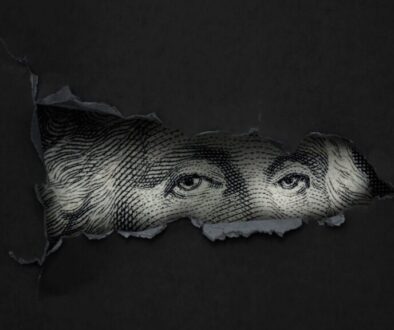Will Vanguard, T. Rowe Price, and BlackRock support lobbying transparency at Boeing?
On April 29th, Boeing shareholders will vote on a proposal asking the company to provide a report on its board oversight procedures for lobbying and its federal and state lobbying expenditures, including indirect funding of lobbying through trade associations. Boeing is currently embroiled in a legal and reputational crisis in the wake of the two tragic, fatal crashes of the 737 Max 8 aircraft. With a poll finding 53% of Americans would not want to fly on a 737 Max even after the FAA clears the aircraft for service, it is clear that Boeing’s reputation is damaged and underscores the need for Boeing to embrace accountability and be fully transparent with shareholders, including disclosing its lobbying activity. Companies with a high reputation rank perform better financially than lower ranked companies, and executives find it is much harder to recover from a reputational failure than to build and maintain reputation. [1]
Since 2010, Boeing has spent over $152 million on federal lobbying on issues like aviation safety, FAA funding, bomber programs, tax reform and Iran issues. In 2018, Boeing was the third-highest corporate spender on federal lobbying, spending more than $15 million with nearly 100 lobbyists. At the state level it’s much harder to know exactly how much Boeing spends because state disclosure requirements are uneven and data is hard to digest. To alleviate that problem, Boeing should make this information readily available to its shareholders, which is what investors are asking for in a shareholder resolution that is up for a vote. The proposal is part of an ongoing investor campaign for greater corporate lobbying disclosure.
Boeing sits on the boards of the Business Roundtable and National Association of Manufacturers, which together spent over $32 million on federal lobbying in 2018. Boeing also participates in the U.S. Chamber of Commerce Foundation, which is the Chamber of Commerce’s charitable group, and Chamber events, yet shareholders have no way of knowing if Boeing currently belongs to the Chamber of Commerce. The Chamber spent $94.8 million on federal lobbying in 2018 alone. As a member of at least two of these groups, Boeing should disclose to shareholders exactly how much it pays the trade associations to lobby on its behalf, as involvement with trade associations can pose risks to a company’s reputation.
With more than 19% of the voting power at Boeing, the large mutual fund companies Vanguard, BlackRock and T. Rowe Price are in a position to move the needle on this issue. As the largest managers of retirement savings, mutual funds control significant voting shares in America’s most powerful companies. According to the 2019 Boeing proxy statement, Vanguard beneficially owned 42,082,493 shares (7.4%), T. Rowe Price 33,505,636 shares (5.9%) and BlackRock 32,920,554 shares (5.8%). Yet, Vanguard, T. Rowe Price and BlackRock consistently vote against shareholder proposals that attempt to bring corporate political activity into the light.
In 2018, Vanguard, T. Rowe Price and BlackRock all voted against the shareholder proposal asking Boeing to disclose its lobbying to shareholders. If these three mutual funds had instead voted their combined 105,090,283 shares [2] in favor of the 2018 proposal, it would have received a majority out of the votes cast for and against. [3] A 2017 Public Citizen report illustrates just how detrimental the mutual fund companies’ failure to support political spending disclosure is. In 2016, 64% of political spending disclosure shareholder resolutions at companies where mutual funds own more than 5% of common stock would have received majority support if those mutual funds had voted their shares in support of the resolutions.
Proxy advisor Institutional Shareholder Services has recommended that shareholders vote for the proposal, noting that Boeing “is currently involved in a significant controversy over the FAA’s approval process for its 737 Max 8 aircraft in the wake of two deadly airplane crashes. As a result, the company’s relationship with the FAA and its lobbying efforts will come under closer scrutiny.” [4]
If you own shares directly in Boeing, you should vote in favor of Proposal 4, which asks the company to prepare an annual report on its lobbying activity so that shareholders- the true owners of the company- can assess the associated risk.
If you don’t own stock directly in Boeing –or any other company where these shareholder resolutions are filed this year– but are worried about undisclosed political spending by corporations that is being used to influence our democracy, chances are you can have an impact through your 401(k) instead. If you invest your retirement with Vanguard, BlackRock, Fidelity, or State Street, tell them to change the way they vote so that progress on disclosure can move forward.
Click here to read a shareholder advisory from The Province of Saint Joseph of the Capuchin Order, who filed the lobbying disclosure resolution.
[1] “Reputation Risk,” The Conference Board, 2007, p. 6.
[2] Vanguard and BlackRock ownership figures taken from Boeing 2018 proxy, T. Rowe Price figures from T. Rowe Price 13F for period ended 12/31/17.
[3] The 2018 shareholder proposal for lobbying disclosure received 96,831,907 votes for, 300,353,428 votes against and 11,558,179 votes that were abstentions.
[4] ISS 2019 Boeing Proxy Analysis, April 2, 2019, p. 26.




Guest Post: BlackRock Strikes Down Shareholder Resolution Calling for Lobbying Disclosure - Corporate Reform Coalition
June 6, 2019 @ 9:51 pm
[…] unpopular and that might cause consumers to stop purchasing their products. In fact, it has been shown that a company’s reputation with the public correlates directly with its financial […]